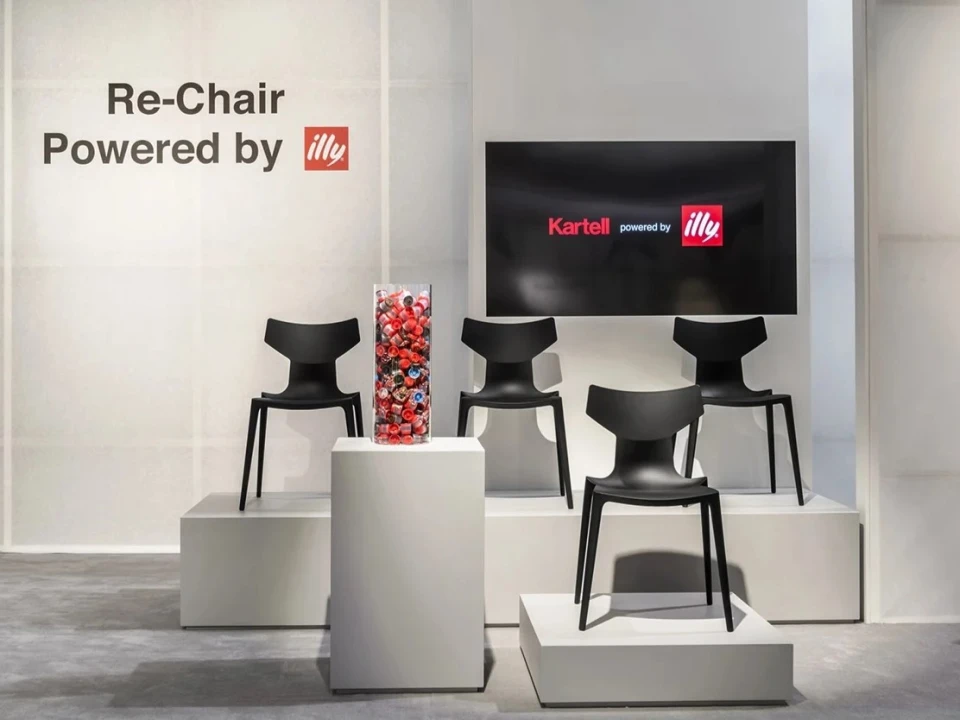The Economy of our days is strongly conditioned by the paradigm of Sustainability, which is increasingly decisive in influencing the choices of Consumers and directing the activities of Companies. Design, in this context, represents a valuable tool available to Companies to tune production, organization and communication with the spirit of the times.
The relationship between Design and Sustainability passes, first of all, through a design of products that foresees and programs their disassembly and recycling at the end of their life cycle already during production.
Sustainable Design, moreover, promotes energy efficiency and the reduction of greenhouse gas emissions by adopting innovative technological solutions, such as the use of renewable energy, the optimization of production processes and the design of energy-efficient products.
Sustainability, again, involves a Design that focuses on the durability and longevity of products, encouraging the adoption of responsible consumption patterns, such as reuse and exchange.
Crucial, finally, for sustainable Design is the study, selection and use of recycled, biodegradable and low environmental impact materials.
Particularly interesting and worthy, in this context, appears the initiative that is characterized by an unprecedented partnership between two prestigious excellences of Made in Italy: Kartell and Illy.
The Design company and the Coffee group have long been engaged in a virtuous collaboration, which sees the former making products for Furniture using waste from the production cycle of the latter.
The project has already yielded some valuable fruits: a chair in 2022, an armchair in 2023, and a console in 2024.
The mechanism prepared by the companies, in essence, involves Illy's unused capsules being recovered, sorted, transferred and reused to make Kartell's furniture.
Claudia Scocchia, CEO of Illy, says, "In Trieste, in our only factory, where we do everything from cleaning the raw material to packaging the product, the capsules are selected. The waste, the unused capsules, are packed and sent to Kartell. We do 100-ton loads."
Lorenza Luti, Kartell's Marketing and Retail Director, says, "We do the processing of Illy-Kartell products in the Varese plant. The first step in the process is the selection of capsules. We discard, by hand, those of lesser quality."
The capsules are then separated by color and fed into the machine, which grinds them and makes them second raw material, ready to be used.
The new plastic is injected into molds and processed; the product then goes through the painting stage and quality control.
To make a chair or a console, the amount of material needed is very similar: in both cases about 400 coffee capsules are needed.
Adds Lorenza Luti: "We have perfected the process over time. We learned that separating the capsules by color would give us an advantage at the painting and finishing stage. Most importantly, we realized that the design phase can help us use less raw material."
This is not an impromptu initiative, a petty marketing gimmick, but a wide-ranging project that the companies are gradually expanding and that fully responds to their respective Sustainability policies.
Indeed, Cristina Scocchia comments, "Our business philosophy is driven by sustainability and product traceability. We buy raw material from nine countries in difficult areas of the world, but all our coffee comes from regenerative circular agriculture. We have a common value structure with Kartell, and we leveraged that for our collaboration."
Lorenza Luti points out, "As of 2018, we no longer think about products that are not made with sustainable materials and processes. We use 100 percent recycled plastics and are experimenting a lot with bioplastics."
It is hard to think of another combination of products that reflects as fully and truthfully the spirit of Italianità: Coffee and Home.
Giuseppe Verdi said that "coffee is the balm of the heart and spirit"; and Pliny the Elder already wrote that "home is where the heart is."
Design in this case serves as the perfect bridge connecting two spearheads of Made in Italy, for a brilliant operation from an entrepreneurial point of view and admirable from an ethical point of view.
The best closing to the initiative lies in the words of Cristina Scocchia and Lorenza Luti, who in unison declare that they wanted to field a project "that had the founding characteristics of our businesses: quality, innovation, sustainability."




